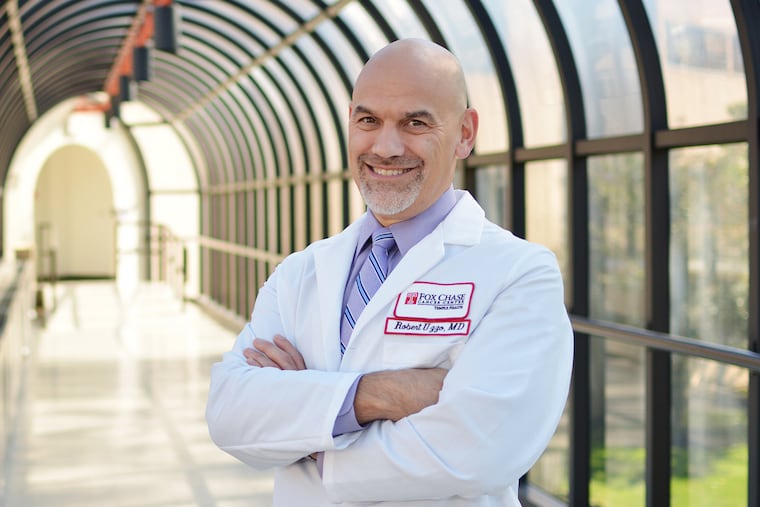Here’s what will revolutionize cancer care in the next 10 years, according to Fox Chase Cancer Center CEO Robert Uzzo
Cancer screening, treatment, and recovery are all changing as researchers advance medicine on "a very steep slope," says Robert Uzzo, CEO of Fox Chase Cancer Center.

Blood tests that detect cancer, surgery without a single incision, an alternative to chemo derived from our own immune system: These are some of the innovations that Fox Chase Cancer Center CEO Robert Uzzo believes will revolutionize cancer care in the coming years.
Fox Chase is one of two Philadelphia institutions designated as a comprehensive cancer center by the National Cancer Institute for its excellence in laboratory, clinical, behavioral, and population-based cancer research. Abramson Cancer Center at University of Pennsylvania is also among the 54 such institutes with the NCI’s highest distinction.
In an interview with The Inquirer, Uzzo described a rapidly changing landscape for cancer care, as advanced genomic data, computing capabilities, and artificial intelligence enable scientists to identify and test potential treatment and screening methods faster than ever before.
“Progress in health care is punctuated by these long pauses and marginal progress, but right now we’re on a very steep slope,” said Uzzo, who was named president and CEO in October after holding the position on an interim basis.
Here are three developments he expects to transition from research stages to routine medical practice in the next five to 10 years:
A shift in cancer detection
Uzzo expects that the way doctors screen for cancer will shift from an imaging-based approach to blood tests, which could detect cancer sooner and identify more types of cancer.
Tumors begin to develop years or even decades before they are large enough to be detected through imaging, Uzzo said. Only a handful of cancers currently are screened for routinely, and mostly through imaging: Mammograms screen for breast cancer, colonoscopies for colorectal cancers, and low-dose CT scans for lung cancer. Gynecologists use a Pap smear to screen for cervical cancer.
Researchers are studying how blood tests may be able to detect DNA or protein from tumors that circulate in the blood long before imaging can detect cancer. Earlier detection would enable doctors to personalize how often individual patients need image-based screening. Patients may even be able to prevent their cancer from progressing through lifestyle changes.
What’s more, blood tests would be less expensive and more convenient than imaging tests, which could improve access to screening.
Advances in surgery
Uzzo anticipates that minimally invasive surgery combined with more advanced screening will increasingly be used to remove cancer.
Surgeons have for years removed tumors in the gallbladder, stomach, and uterus using laparoscopic surgery — a technique in which tiny tools and cameras are inserted through incisions no more than a centimeter long. The approach allows for faster recovery with less risk of infection.
In the next several years, doctors may be able to remove cancer even less intrusively, Uzzo said.
Endoscopies that snake a scope through the body to scan for cancer, inflammation, or other illnesses are increasingly being used to treat concerns immediately upon detection.
For instance, doctors routinely remove small polyps found in the large intestine during a colonoscopy (a type of endoscopy that screens for colorectal cancers). In the future, they may also be able to remove larger polyps in an outpatient clinic, rather than booking patients for a more expensive hospital procedure with an overnight stay.
Greater understanding of the immune system
Uzzo expects that therapies that deploy the immune system to destroy cancer cells — known as immunotherapy — will increasingly reduce doctors’ reliance on chemotherapy’s drug infusions to treat cancer.
A leading immunotherapy has origins in Philadelphia: Researchers at the University of Pennsylvania developed CAR-T, in which the body’s white blood cells are genetically modified to attack cancer. The technique is currently used for blood cancers, such as leukemia.
The next advances will require learning more about how the immune system works and ages.
“All our organs age, and our immune system ages as well,” becoming less able to recognize the proteins produced by tumors, Uzzo said.
Researchers are studying how to “rev up” the immune system to be more responsive to cancer DNA.